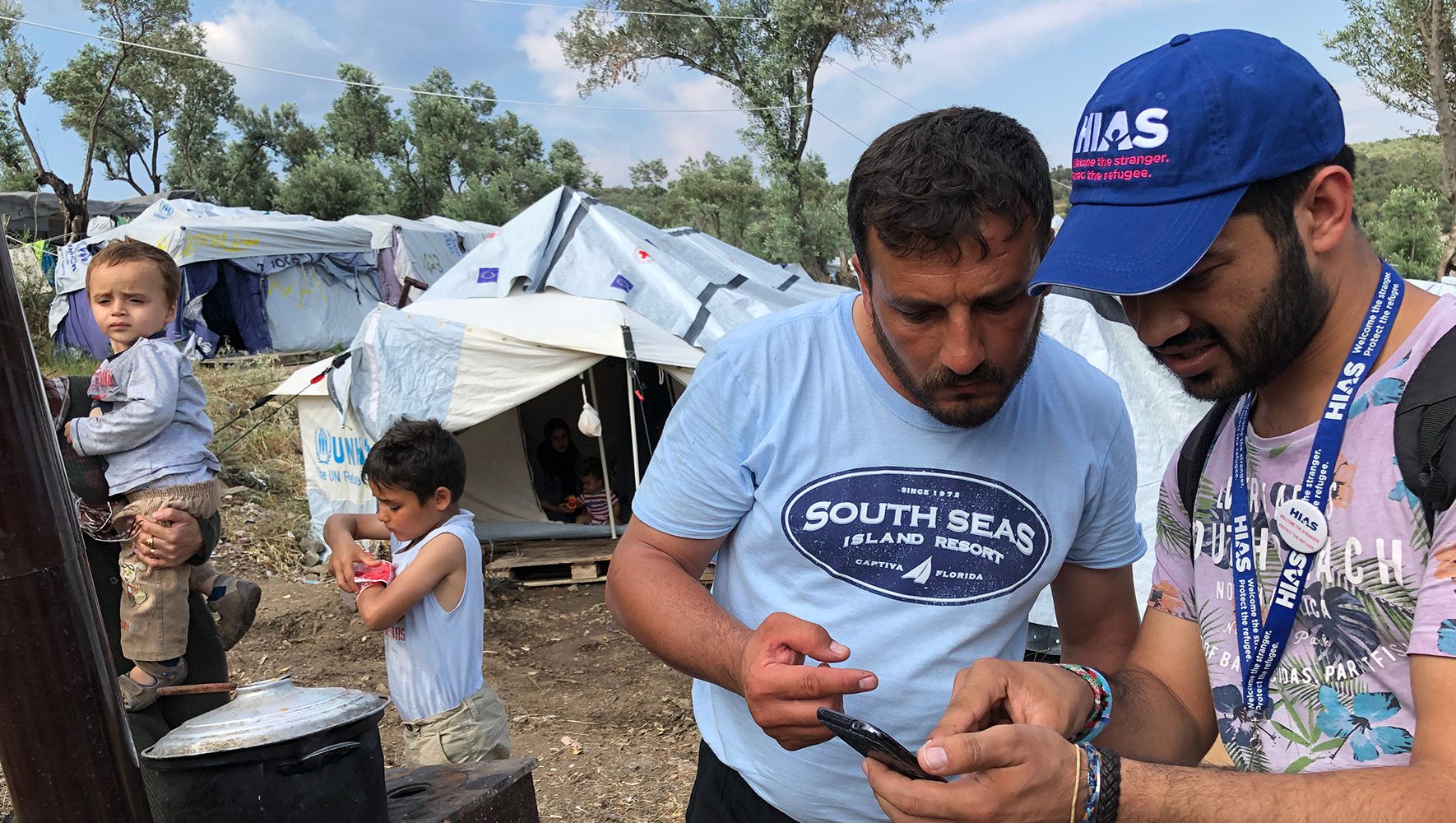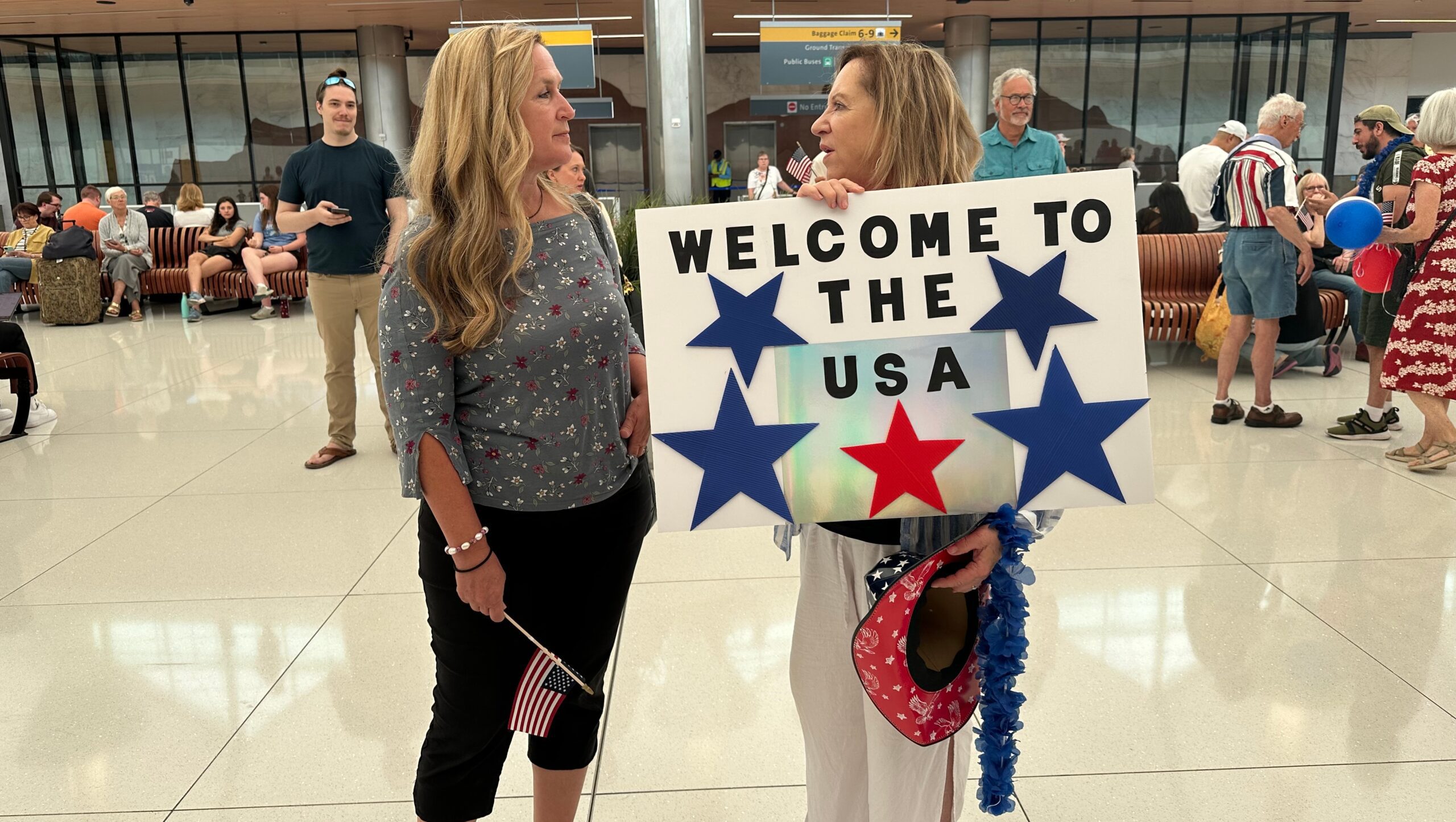Statement to U.S. House - Hearing on Asylum Fraud
Feb 11, 2014
Statement submitted to the Subcommittee on Immigration and Border Security,
Committee on the Judiciary of the U.S. House of Representatives Hearing on
“Asylum Fraud: Abusing America’s Compassion?”
Presented by Melanie Nezer, VP of Policy and Advocacy, HIAS
February 11, 2014
Throughout our history, America has been defined by our generosity toward those who seek a safe haven from oppression. An asylum system that is fair, effective and humane honors our country’s history and reflects the deeply-held American tradition of offering a chance at a new beginning to those who seek safety and freedom.
In the aftermath of World War II, when the price for keeping doors closed to refugees was starkly clear, the international community adopted the 1951 United Nations Convention relating to the Status of Refugees, which to this day defines who is a refugee and what legal protection a refugee is entitled to receive and is the basis for U.S. refugee and asylum law.
The United States incorporated these protections into our own laws, and they have been the foundation of our asylum system for decades. Actions by Congress to curtail access to asylum in the United States would be inconsistent with international and U.S. law and send a dangerous message to countries around the world that are likely to follow our lead and close their doors to asylum seekers.
HIAS believes that national security and a humane and fair asylum system are compatible. National security is not enhanced when our anti-terrorism laws needlessly deny protection to refugees and asylum seekers who have no real connection to terrorism and who are fleeing some of the most brutal regimes and violent conflicts on earth.
A critical purpose of the Immigration and Nationality Act is to give refuge to persons fleeing persecution but not to those who pose a threat or danger to the United States. In discussing the REAL ID Act, Representative Sensenbrenner stated that the intent of Congress in passing the USA PATRIOT Act and the REAL ID Act was to keep out persons who intended to cause harm to the United States while “protecting honest asylum seekers.”
The terrorism-related inadmissibility grounds – or “TRIG” – that were expanded by the USA PATRIOT Act and the REAL ID Act, bar any individual who has provided what the law terms “material support” to terrorists from entering the United States. Leading organizations in the Jewish community were at the forefront of efforts to enact a tough ban on material support for terrorist organizations as well as sanctions against the states that sponsor them. However, for more than 10 years, the TRIG provisions have been used to exclude victims of terrorism, some whose very struggle to be free now makes them inadmissible to the United States.
Terrorism as defined by law includes acts intended to intimidate or coerce a civilian population or to influence the policy of a government by intimidation or coercion. Common definitions of terrorism do not include paying a ransom to obtain the release of a kidnapped child. Common definitions of terrorism do not include selling food at a restaurant, hosting family members for a night, or treating the wounded.
Common definitions of terrorism also do not include the use of justifiable force to repel attacks by forces of an illegitimate regime. The concern underlying the creation of the Tier III category of “non-designated” terrorist organizations was to give the government the ability to deal with newly emerged or newly discovered dangerous groups and their supporters without having to wait for a designation process. The U.S. government should not exclude people for support to or membership in “Tier III” organizations that it would never designate as terrorist organizations because their activities fall within the scope of legitimate self-defense and pose no danger to the security of the United States.
The Bush Administration attempted to minimize the impact of these broad provisions on refugees and asylum seekers by issuing exemptions for individuals who provided support to Burmese religious and ethnic minority groups who resisted the brutal Burmese regime. In 2008, Congress legislatively exempted these Burmese groups from the TRIG bars, and also exempted Cubans who provided support to individuals and groups who fought against Fidel Castro, Hmong and Montagnards who fought with U.S. forces during the Vietnam War, and members of the African National Congress.
In addition to exempting certain groups, in 2008 Congress granted the Administration additional discretionary authority to issue exemptions in cases where the TRIG bars were having the effect of excluding refugees and asylum seekers unfairly labeled as “terrorists.” This provision had bipartisan support in the House and Senate and was negotiated by Senators Patrick Leahy and Jon Kyl.
In the following years, the Obama Administration issued exemptions that have authorized Department of Homeland Security officials, in their discretion, to exempt individuals who provided “support” or engaged in other activity under duress, provided medical care, or were members of certain designated groups – including the Iraqi uprising. These were all carefully considered, reasonable and appropriate steps to help resolve the longstanding TRIG problems that have barred so many asylum seekers and refugees from obtaining protection and reuniting with family in the United States.
Recent actions by the Administration to grant discretionary authority to DHS adjudicators are consistent with both national security and providing protection to individuals who seek asylum in the United States. Last week, the Obama administration issued exemptions authorizing DHS adjudicators to exempt those who provide “insignificant” assistance, who engaged in certain routine commercial or social transactions, or who provided certain humanitarian assistance to an undesignated (Tier III) terrorist group. Exemptions can also be issued for those who were pressured to provide support.
In order to qualify for either of these exemptions, an applicant must pass all relevant background and security checks, fully disclose to the U.S. government all information about the activity, and not have provided material support to activities that he or she knew or reasonably should have known targeted noncombatants, U.S. citizens, or U.S. interests. There are numerous other requirements and limitations imposed on DHS adjudicators that will ensure that only those who merit an exemption receive one, including that the individual poses no danger to the safety and security of the United States.
Shockingly, under today’s laws, Jews who bravely resisted and survived Nazi terror would be excluded from refuge in the United States. Under current policy, the Warsaw ghetto uprising would have been considered “terrorist activity” because it involved the use of weapons against persons or property for reasons other than for “mere personal monetary gain.”
Congress’ failure to amend the overbroad terrorism definitions and TRIG provisions that bar asylum seekers and refugees who have no connection to terrorism under the common understanding of the term, along with the Administration’s failure to fully use the authority granted by Congress in 2008 to grant exemptions to asylum seekers and refugees who pose no threat to the United States, undermine America’s leadership in the realm of refugee protection and could ultimately undermine the international regime of refugee protection itself. In addition, U.S. foreign policy interests are ill-served when we suggest to oppressive governments and brutal terrorist groups that their victims are considered “terrorists” by the United States rather than refugees .
Even if the Administration fully exercises its authority under the law—which to date it has not—the law will continue to bar deserving refugees from admission to the United States. HIAS strongly believes that the Administration and Congress should work together to immediately amend the law to ensure that innocent victims are not branded as "terrorists" and refused safe haven.






